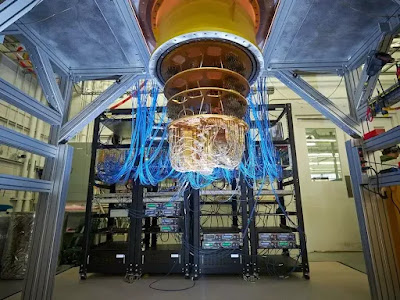From Sci-Fi to Reality: Cutting-Edge Tech Innovations Unveiled
Innovation has always been at the forefront of human progress, and over the years, we have seen remarkable advancements in technology that were once the stuff of science fiction become a reality. From futuristic gadgets to awe-inspiring breakthroughs, cutting-edge tech innovations have transformed our lives in ways we never imagined. In this essay, we will explore ten such innovations that were once the stuff of sci-fi dreams but have now become a reality, shaping the world we live in today.
1
Artificial Intelligence (AI): Pioneering the Future
Artificial Intelligence (AI) has long been a staple in science fiction literature and movies, with visions of sentient robots and intelligent machines capturing our imaginations. Today, AI has become a reality, revolutionizing industries such as healthcare, finance, transportation, and communication. AI-powered systems can process and analyze vast amounts of data, identify patterns, and make decisions with speed and accuracy. From voice assistants like Siri and Alexa to self-driving cars, AI is transforming the way we interact with technology and making our lives more convenient and efficient.
2
Virtual Reality (VR) and Augmented Reality (AR): Redefining Experiences
Virtual Reality (VR) and Augmented Reality (AR) were once considered futuristic concepts, but they are now becoming mainstream technologies. VR immerses users in a virtual world, while AR overlays digital information on the real world. These technologies are changing the way we experience entertainment, gaming, education, and even social interactions. From virtual travel experiences to interactive educational simulations, VR and AR are redefining how we perceive and interact with the world around us.
3
Internet of Things (IoT): Connecting the World
The Internet of Things (IoT) refers to the interconnectivity of everyday objects through the internet, allowing them to collect and exchange data. This technology has transformed homes, cities, and industries by making them smarter and more efficient. Smart home devices like smart thermostats, smart lights, and smart appliances are now common, allowing users to control and monitor their homes remotely. In industries, IoT has enabled smart factories and supply chain management, leading to improved productivity and cost savings.
4
3D Printing: Revolutionizing Manufacturing
3D printing, also known as additive manufacturing, has transformed the manufacturing industry by enabling the creation of complex objects layer by layer. This technology has made it possible to create custom-made products, prototypes, and even human organs using biological materials. 3D printing has disrupted traditional manufacturing processes, reducing costs, minimizing waste, and accelerating the production cycle. It has applications in various fields, including aerospace, automotive, fashion, and healthcare, and has opened up new possibilities for innovation and customization.
5
Quantum Computing: Unlocking New Frontiers
Quantum computing, a field of computing that uses the principles of quantum mechanics, is pushing the boundaries of what is possible in terms of computing power and data processing. Quantum computers have the potential to solve problems that are currently impossible for classical computers to tackle, such as simulating complex molecular systems, optimizing supply chains, and breaking encryption codes. Although still in the early stages of development, quantum computing holds promise for revolutionizing industries and solving some of the world's most pressing problems.
6
Biotechnology: Transforming Healthcare
Biotechnology, the use of living organisms or biological processes for technological advancements, has revolutionized healthcare in unprecedented ways. Genetic engineering, gene editing, and personalized medicine are some of the breakthroughs that have transformed the treatment of diseases and improved patient outcomes. Gene editing technologies such as CRISPR-Cas9 have the potential to cure genetic diseases by editing faulty genes, while personalized medicine uses a patient's genetic information to develop targeted therapies. Biotechnology has also






